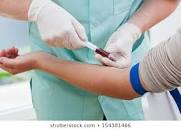
Diagnosed with Cancer? Your two greatest challenges are understanding cancer and understanding possible side effects from chemo and radiation. Knowledge is Power!
Learn about conventional, complementary, and integrative therapies.
Dealing with treatment side effects? Learn about evidence-based therapies to alleviate your symptoms.
Click the orange button to the right to learn more.
- You are here:
- Home »
- Blog »
- Healthy Living Products »
- Multiple Myeloma Remission- More Chemotherapy or No?
Multiple Myeloma Remission- More Chemotherapy or No?
“William Li presents a new way to think about treating cancer and other diseases: anti-angiogenesis, preventing the growth of blood vessels that feed a tumor…”
Dear David- When I was first diagnosed with multiple myeloma, I originally enrolled in your cancer coaching program 3 yrs ago. I had an allergic reaction to Revlimid, have taken no chemotherapy for almost 3 months.
I recently went thru another battery of tests last to determine exactly where I am. Originally I was determined to continue with a chemo. My oncologist suggested Ninlaro. Now I am having second thoughts.
My diagnostic numbers have been “excellent” for some time. I take the identical regimen you take:
- curcumin,
- resveratrol,
- omega-3 fatty acids,
- Wobenzyme N,
- green tea extract,
- others.
as well as Dr. William Li’s anti-angiogenic nutrition. I need some help deciding where from here. I would appreciate your help. Thank you, Grace
Hi Grace,
- MM Survivor
- MM Cancer Coach
- Director PeopleBeatingCancer
Recommended Reading:
William Li: Can we eat to starve cancer? | TED Talk – TED Talks
“William Li presents a new way to think about treating cancer and other diseases: anti-angiogenesis, preventing the growth of blood vessels that feed a tumor. The crucial first (and best) step: Eating cancer-fighting foods that cut off the supply lines and beat cancer at its own game…”
New Insights in Anti-Angiogenesis in Multiple Myeloma
“MM is the second most common blood-based malignancy, affecting approximately 20,000 new patients each year. More effective treatment options for MM are urgently needed.
Disease relapse is inevitable and MM remains incurable. Anti-cancer drugs including novel therapies in monotherapy have debilitating side effects, and these treatments only benefit a minority of patients. The identification of subgroups of patients who will derive the most benefit from a drug with manageable drug-related toxicity is an important step towards improved response rates, safety and survival…
Resistance to anti-angiogenic agents is a clinically significant problem. Different approaches to circumvent this problem have been established, including the use of multiple-targeted anti-angiogenic agents and/or combined-modality treatment strategies. It would appear that the future of angiogenic inhibitors lies in the intelligent combination of multiple targeted agents with other angiogenic inhibitors to maximize therapeutic effect…”
Drug Resistance in Multiple Myeloma
“Multiple myeloma (MM, plasma cell myeloma) is a malignant hematologic disease characterized by the clonal proliferation of malignant plasma cells. The treatment of MM has changed dramatically in recent years, with the introduction of new drugs into therapeutic strategies, both in the front line setting and in relapsed refractory disease.
However, most patients eventually relapse and often demonstrate multiple drug resistance.
Therefore there is still an urgent and unmet need to define the molecular mechanisms of resistance for available drugs in order to enhance the use of existing treatments and design more effective therapies…
Achieving a better understanding of the pathways and protein expression involved in MM drug resistance and the development of novel therapeutic strategies are important goals for further progress in the treatment of MM…”



